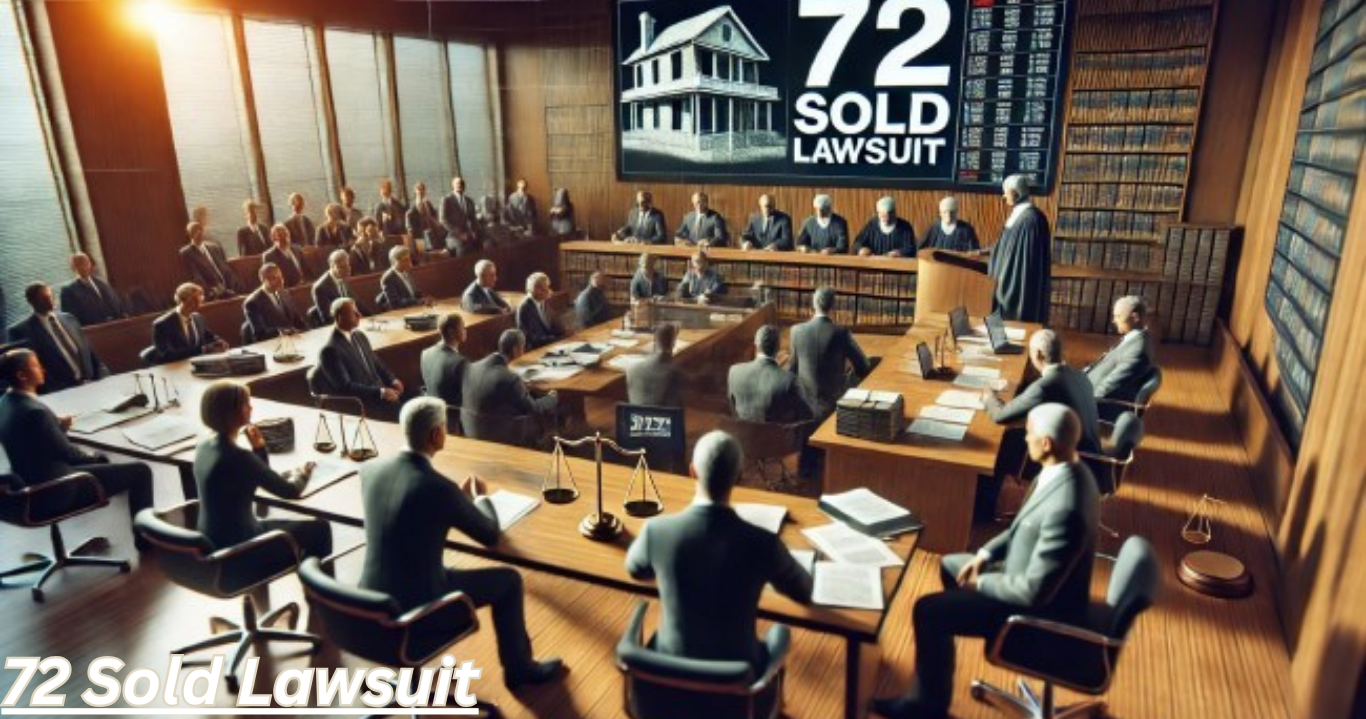In the ever-evolving world of real estate, new strategies and concepts frequently emerge, often generating excitement among home sellers and buyers. One such method that’s recently made headlines is the 72 Sold program. While it promises to expedite sales and maximize profits, it has also sparked controversy—leading to a lawsuit that raises important questions about its legal implications. If you’re considering participating in a 72 Sold transaction or simply curious about what this means for the housing market, understanding the intricacies behind this lawsuit is crucial. Let’s dive into what you need to know about the 72 Sold lawsuit and how it affects both sellers and buyers alike.
What is the 72 Hour Clause?
The 72 Hour Clause is a unique provision often found in real estate transactions. It’s designed to give sellers an edge in competitive markets.
This clause allows the seller to accept backup offers while their home is under contract. If they receive another attractive offer, they can trigger the clause. This gives them just 72 hours to consider the new offer before deciding whether to proceed with it or stick with the current buyer.
For many sellers, this means increased flexibility and potential for better deals. However, it also introduces pressure on buyers who must act quickly if they want a chance at acquiring the property.
Understanding this clause is crucial for both parties involved in a transaction. It shapes negotiations and influences strategies on how best to approach buying or selling a home.
How Does the Clause Affect Home Sellers?
The 72 Hour Clause can significantly impact home sellers. This provision allows buyers a limited time to make an offer, creating urgency in the market. Sellers may feel pressure to respond quickly, often leading to rushed decisions.
With multiple offers potentially flooding in within that short timeframe, it can be challenging for sellers to evaluate each option thoroughly. They might miss out on favorable terms or overlook important contingencies due to the haste.
Additionally, if a seller receives an appealing offer but is still bound by another contract under this clause, they could face legal challenges down the line. This situation underscores the importance of understanding contractual obligations before signing any agreements.
Sellers should remain vigilant and seek professional advice when navigating these transactions. A clear strategy and thorough comprehension of their rights will help them maximize their outcomes while minimizing risks associated with quick sales.
How Does the Clause Affect Home Buyers?
The 72 Hour Clause can significantly influence home buyers’ experiences. Buyers often face intense pressure when a property is listed under this clause. They have limited time to make decisions, which can lead to rushed purchases without thorough evaluations.
This urgency may push them into bidding wars with other interested parties. As emotions run high, buyers might overlook critical inspections or fail to negotiate better terms.
Additionally, the possibility of losing a home they desire in such a short timeframe creates anxiety. Many find themselves making offers above their budget just to secure the deal.
While speed is essential in these transactions, it’s crucial for buyers to remain vigilant and informed. Taking shortcuts could result in long-term consequences that outweigh any immediate benefits from securing a property quickly.
Legal Implications and Potential Consequences
The legal implications of the 72 Sold lawsuit can be significant for both home sellers and buyers. As this clause often stipulates a tight timeframe, it can lead to rushed decisions that may not align with long-term interests.
For sellers, failure to adhere to the terms could result in breach-of-contract claims. This scenario might expose them to financial penalties or even lawsuits from disgruntled buyers who feel misled.
Buyers aren’t immune either. They may face challenges if they miss critical deadlines tied to financing or inspections. Such oversights could jeopardize their investment, leaving them vulnerable in a competitive market.
Furthermore, misunderstanding the clause’s nuances can lead to disputes that escalate into costly litigation. Legal fees and potential damages can add up quickly, making it essential for all parties involved to fully grasp the risks associated with this agreement before proceeding.
Tips for Protecting Yourself in a 72 Sold Transaction
When navigating a 72 Sold transaction, it’s essential to stay informed. Understanding the terms of the agreement can save you from potential pitfalls. Read every document carefully and ask questions if anything is unclear.
Consider consulting with a real estate attorney. They can provide insights specific to your situation, ensuring you’re aware of all legal obligations and rights involved.
Don’t rush into decisions. Take your time reviewing offers and counteroffers, especially under pressure to meet deadlines imposed by the 72-hour clause.
Keep meticulous records of all communications related to the sale or purchase. This documentation may prove invaluable should any disputes arise later on.
Collaborate closely with your agent throughout this process. Their expertise will guide you in making sound choices that align with your best interests in this unique selling strategy.
Conclusion
The 72 Sold lawsuit has opened a crucial dialogue about the responsibilities and risks involved in real estate transactions. For home sellers, understanding the 72-hour clause is essential for navigating offers effectively. It can bring both opportunities and potential pitfalls, impacting how homes are marketed and sold.
Home buyers also need to be aware of how this clause influences their purchasing decisions. Being informed helps mitigate risks associated with hasty actions or misunderstandings during negotiations.
Legal implications surrounding the 72 Sold model highlight why both parties must proceed with caution. Potential consequences can range from financial losses to litigation if expectations are not clearly communicated and managed.
Taking proactive steps can safeguard your interests when engaging in a transaction involving the 72 hour clause. Consulting legal experts, reading all documentation carefully, and remaining communicative throughout the process will serve you well.
Understanding these dynamics creates a more secure environment for everyone involved in real estate transactions related to the 72 Sold model. Awareness is key—knowledge empowers sellers and buyers alike as they navigate this evolving landscape together.




